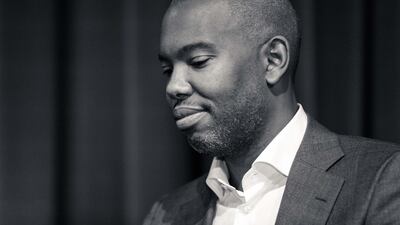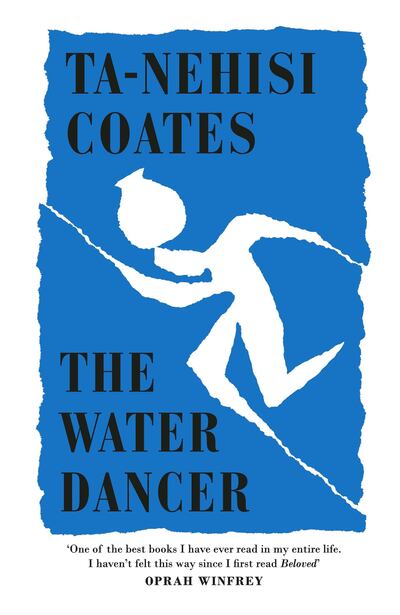As one of the country's most renowned public intellectuals, Ta-Nehisi Coates is unsurpassed when it comes to the subject of race in contemporary America. He has long been calling for a full and honest reckoning with the horrors of slavery.
In June 2014, The Atlantic published Coates's watershed essay The Case for Reparations, in which he eloquently argued for the descendants of slaves to be awarded financial recompense, and the following year saw the publication of his National Book Award-winning Between the World and Me (2015), a book-length essay written in the form of a letter to his teenage son about what it means to be a black American male. It isn't enough, Coates contends, to simply acknowledge the horrors of the past. What must be addressed is the fact America is a country built on inhumane bondage, the repercussions of which are still resonating with cruel and calamitous impact today.
Perhaps unsurprisingly, then, a related reckoning nestles at the heart of The Water Dancer, his first novel. The hero of Coates's antebellum-set tale, Hiram Walker, is one of "the Tasked" – such is how the enslaved people refer to themselves – a young man in possession of certain powers: an impressive photographic memory, but also the more mysterious "conduction", the ability to vanish from one place and reappear in another. Before, however, Hiram can harness the latter in service of his freedom and that of those he loves, first he has to learn to face the most traumatic of all the brutalities that his enslavement has wrought.
His father is Howell Walker, the master of the Virginia tobacco plantation where Hiram is born and raised. His mother, Rose – who others say was a beautiful woman "with the kindest heart"– was sold by Howell when their son was only 9 years old. Plucked from the fields, the motherless boy is called to the big house to be a servant to his half-brother Maynard (Howell's white, legitimate son and the estate's heir).
There, Hiram's photographic memory is paraded as a "parlour trick" to entertain guests. No frivolous endeavour, as all the Tasked know too well: "Bored whites were barbarian whites. While they played at aristocrats, we were their well-appointed and stoic attendants. But when they tired of dignity, the bottom fell out. New games were anointed and we were but pieces of the board. It was terrifying."
Helplessness characterises Hiram at the beginning of his story. "A power was within me," he admits, "but with no thought of how to access it or control it, I was lost." That the long and arduous journey of self-discovery he must embark on is redolent of that of a fledgling superhero learning to master his gifts makes sense, given that Coates is also the author of Marvel's Black Panther and Captain America comic books.
Though he remembers all else, the memory of his lost mother eludes Hiram, and for as long as this remains out of reach, so too his grasp of conduction is rudimentary and ungovernable. "For memory is the chariot, and memory is the way, and memory is bridge from the curse of slavery to the boon of freedom," the woman who comes to be his mentor – referred to here as "Moses" – better known in history books as Harriet Tubman, the legendary abolitionist who risked her own hard-won freedom to liberate others by means of the Underground Railroad – tells her protege.
In viewing this dark period of American history through the prism of speculative fiction, Coates is audaciously following in the footsteps of the most impressive of literary forbearers, namely Toni Morrison in Beloved, and more recently, Colson Whitehead's The Underground Railroad. While no one could claim that The Water Dancer is as accomplished an achievement as either of these novels – its flaws are that of many a debut penned by a talented writer still finding their feet in a new medium – its ambition and lyricism nevertheless deserve applause, and there's a certain beauty to its own particular melancholy.
Where Coates really does excel, though, is in his dignified and moving depictions of the humanity of the Tasked. Of all their white oppressors' attempts to dehumanise them, the ease with which a family can be destroyed is especially horrifying: "how families formed in the shadow and the quick, and then turned to dust with the white wave of a hand."
The agonies suffered by Hiram after Rose is taken from him are echoed in numerous equally distressing stories of parents and children or husbands and wives torn asunder. “Hiram, that is the feeling that marks an entire nation held down,” one of his fellow Underground Railroad agents tells Coates’s hero. “A whole country looking up wondering for their fathers and sons, for their mothers and daughters, cousins, nephews, friends, lovers.”


